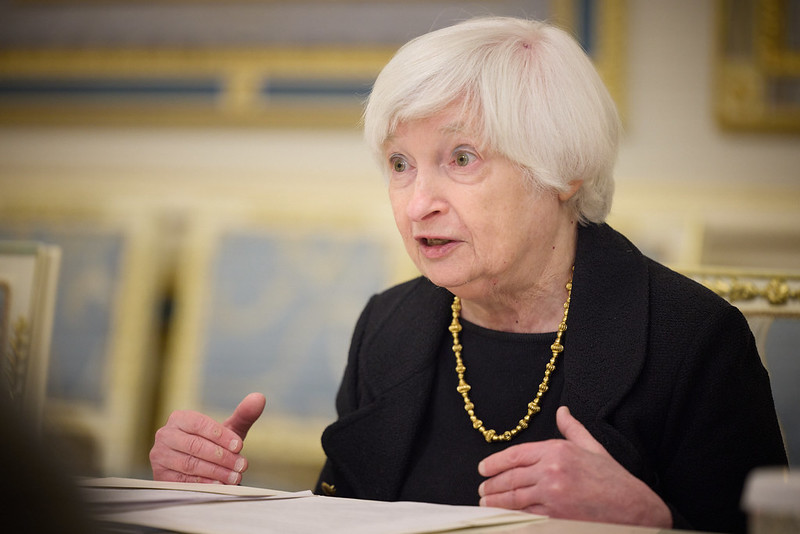
President of Ukraine Volodymyr Zelenskyy met with U.S. Secretary of the Treasury Janet Yellen, who is on a visit to Ukraine. Photo courtesy of the President of Ukraine. February 27, 20223.
The Biden administration is continuing a push begun by the Trump administration to loosen ties between the American and Chinese economies by using “friendshoring,” and other techniques to decrease dependence on Chinese production. That isn’t so easy, reports Andrew Duehren in The Wall Street Journal. Duehren writes:
HANOI, Vietnam—The Biden administration’s attempt to surgically cut economic ties with China is proving difficult to execute.
Treasury Secretary Janet Yellen visited Vietnam this week to discuss her push for “friendshoring,” a term she uses to call for companies to shift supply chains from China to friendlier nations. Trade between the U.S. and Vietnam has exploded in the last five years, reaching roughly $140 billion in 2022 from $60 billion in 2018.
“We see great potential going forward to deepen those relationships,” Yellen said while touring a Hanoi factory that relies on some Chinese components. She repeatedly praised the growing ties in meetings with Vietnamese Prime Minister Pham Minh Chinh and other Communist Party officials during her visit.
Disentangling China’s role in global supply chains, even in limited areas, is far from straightforward. The share of U.S. goods imports from China slipped in recent years, while it expanded with other Asian countries.
Many of those alternative trading partners such as Vietnam or South Korea are themselves deeply intertwined with China. China’s dominance in clean energy technology makes the Biden administration hesitant to push companies to completely avoid Chinese products. And precisely identifying the industries where the U.S. and its allies see China posing a threat is challenging.
Earlier this month, Yellen told her Chinese counterparts in Beijing that the U.S. goal is to reduce exposure to China in key sectors without jeopardizing trade and investment flows that benefit both countries.
Read more here.
